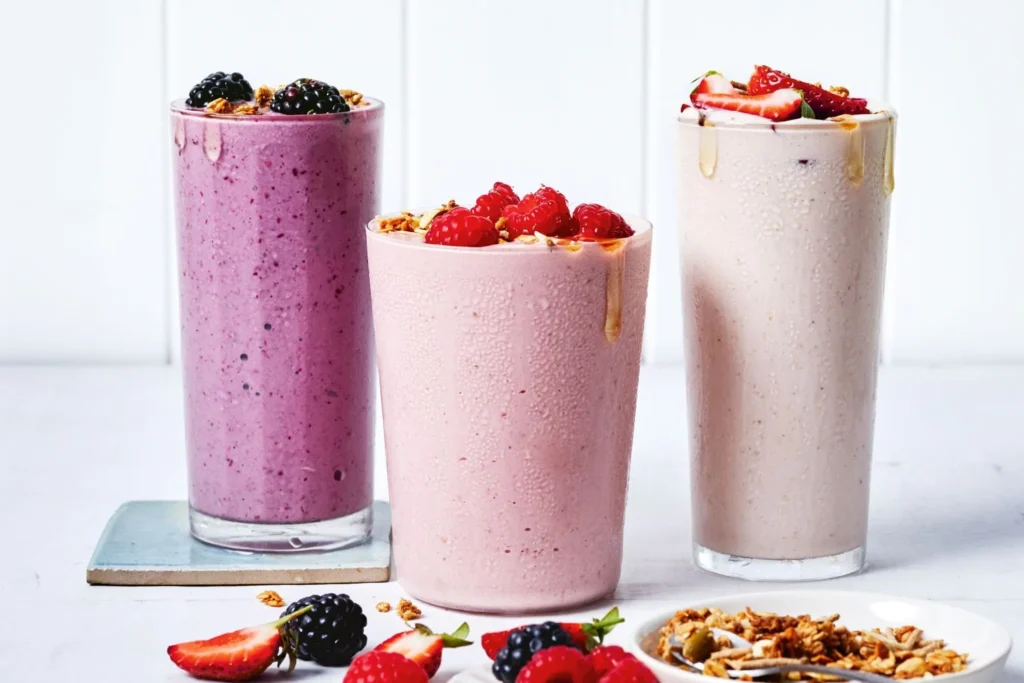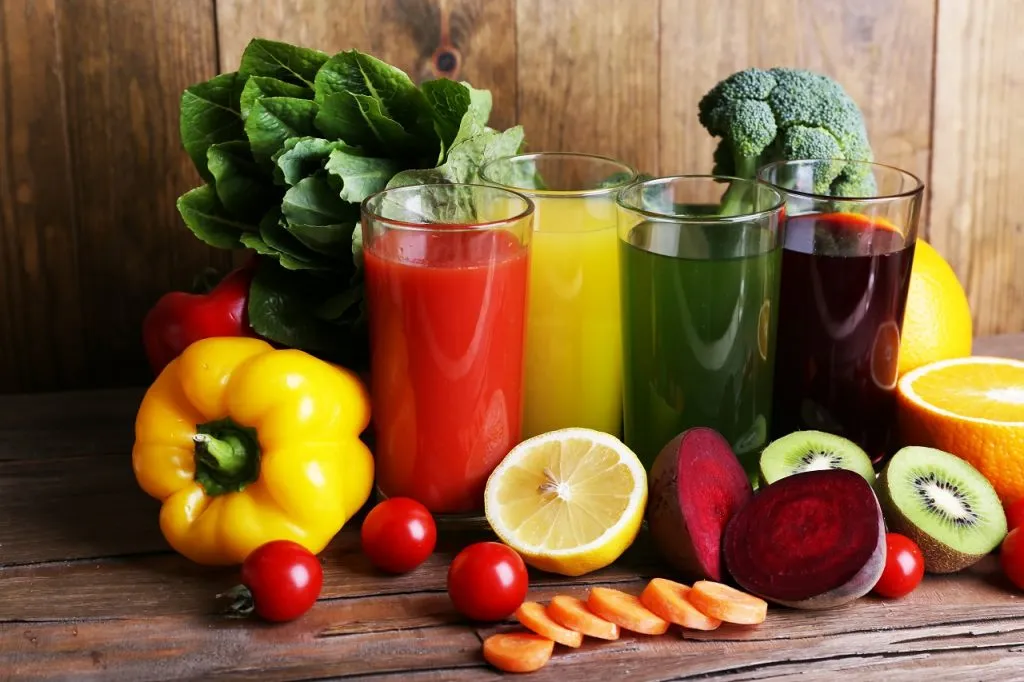There are occasions when everyone feels lethargic and requires a pick-me-up. Approximately one-third of laborers in the United States reported emotional exhaustion, and nearly half reported physical fatigue. This equates to an excessive amount of latency.
Generally, energy and fatigue problems extend beyond a simple remedy. Nonetheless, while addressing the root cause—be it a health issue, tension from work or life, or adjustments to one’s lifestyle—there are dietary modifications that can provide a slight boost to one’s performance. Certain drinks can provide an instantaneous energy increase. However, do your best to get a bit more sleep tonight as well, all right?
1. Water

Experiencing a little lethargy? What a surprise! You may require water rather than caffeine. Exactly why? You may require hydration. The cells in your muscles and brain may be impacted, which you may experience as mental haze or lethargy. Water is necessary for every cell in your body to function.
If there is insufficient water in your body, this means that every cell will be deprived of this, and while it may still function with the little water it does have, it will do so at a suboptimal level. A Research found that dehydration was associated with diminished energy, depressed mood, memory and attention difficulties, and impaired mood.
Regarding the recommended daily water intake, females ought to strive for a total of 91 ounces of liquid from food and drink, while males should aim for 125 ounces. Cochrane recommends consuming water in response to dehydration.
Research suggests that to encourage you to drink more, you should carry a water container with you at all times, select one that maintains the water at the desired temperature (e.g., cold as opposed to room temperature), and add flavor to your water using fruit infusion packets or water infusions (without added sugar).
2. Coffee
Coffee is certainly included on this list. Caffeine, a stimulant that adheres to adenosine receptors in the brain, is present in caffeinated coffee. Caffeine prevents adenosine from causing sleepiness to materialize, which ultimately causes alertness and wakefulness, according to JN Learning (a division of the JAMA Network).
Coffee has numerous health benefits, including a reduced risk of cardiovascular disease and improved cognitive function. However, if you have a habit of using Java, there are a few factors to bear in mind. Cochrane advises against replacing breakfast with coffee. Caffeine may provide a short boost of energy, but the energy you get from food in the morning is more likely to help with sustained energy throughout your day.
Additionally, consider the amount of sugar in your cup. Sugar, while it may provide a transient surge in energy, increases the likelihood of experiencing an energy collapse as a result of its impact on blood sugar fluctuations.
3. Smoothies

A well-planned smoothie, as opposed to water, coffee, or tea, comprises macronutrients (carbohydrates, protein, and fat) that supply calories for energy. Most drinks alone will never give you a good balance of all of these nutrients, but smoothies or shakes might be an exception.
A smoothie is additionally hydrating due to the fruit, ice, and liquid that are incorporated. (Water comprises the majority of produce.) However, a smoothie does not necessarily equate to a nutritious meal; some smoothies contain added sugars, such as sherbet or juice with added sugar.
It is recommended that you ensure the one you purchase contains protein-rich carbohydrates (such as fruits and vegetables), healthy fats (e.g., avocado, nut butter), and fiber-containing carbohydrates (e.g., yogurt or milk).
4. Matcha Tea
Energy is severely sapped by stress; it can quickly deplete you. A hot or iced matcha may be of assistance when experiencing a tension slump. A Research found that healthy adults who ingested 2 grams of matcha (approximately 1 teaspoon) daily for two weeks had superior cognitive function during and after stressful situations compared to placebo groups.
Catechins in tea protect the brain from damage caused by free radicals; matcha also contains theanine, a compound known to enhance focus, and caffeine as an added bonus.
Particularly when purchased as a matcha drink (as opposed to tea) from a coffee establishment, matcha may contain an excessive amount of added sugar. Identify the presence of these in your preferred matcha, or even better, brew your own using one of these nutritious matcha recipes.
5. Fresh Fruit and Veggie Juice

A study published in an increase in vitality—a metric that quantified how energized and full of life they felt—upon consuming two additional servings of fruits and vegetables. Obviously, fresh, whole fruits and vegetables are distinct from juice. However, it is still postulated by scientists that the assortment of vitamins, minerals, and antioxidants might influence an individual’s state of health via mechanisms such as altered intestinal microbiome or improved cerebral blood flow.
One notion? For a kiwi refreshment, puree two gold kiwis in a blender and then garnish with carbonated water or coconut water. A daily consumption of two kiwis has been found to enhance energy and mood, as well as feelings of vitality, possibly due to the fruit’s high vitamin C content.
6. Beet Juice
While beet juice might not be considered a preferred beverage option, it has the potential to enhance physical performance. A study published identified the potential of beetroot juice to reduce fatigue during a running acceleration test.
Additionally, research that beet juice enhanced performance during resistance exercise. Beets contain nitrates, which undergo a conversion process to nitric oxide, a molecule that aids in vasodilation and enhances blood circulation, thereby supplying more oxygen to the brain and muscles. This, in turn, may contribute to a sensation of reduced exertion during physical activity, thereby providing increased energy levels.
Read Also:- The 7 Best Drinks To Stop Sugar Cravings
FAQs
Q: What are the best drinks for an energy boost?
Ans: Some of the best drinks for an energy boost include coffee, green tea, matcha, yerba mate, kombucha, and certain fruit juices like orange juice.
Q: Why is coffee a popular choice for an energy boost?
Ans: Coffee contains caffeine, a natural stimulant that can increase alertness and temporarily ward off drowsiness, making it a popular choice for a quick energy boost.
Q: What makes green tea and matcha good options for energy?
In addition to caffeine, green tea and matcha also contain L-theanine, an advantageous compound that improves concentration and cognitive performance while avoiding the restless effects commonly associated with coffee.
Conclusion
In regard to increasing one’s energy levels, the conclusion is unequivocal: exercise prudent hydration, select beverages that offer sustained energy, and monitor caffeine consumption. Every alternative, including a matcha latte, a green smoothie, or a plain glass of water infused with lemon, provides its own distinct advantages to sustain one’s daily activities. Therefore, the next time you require a boost of energy, choose one of these revitalizing beverages and experience the distinction for yourself!